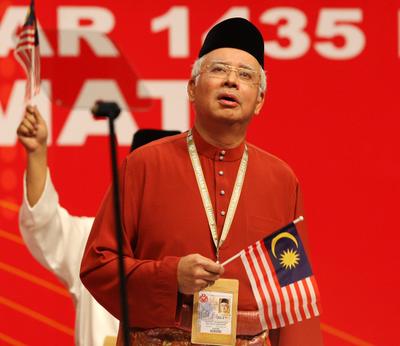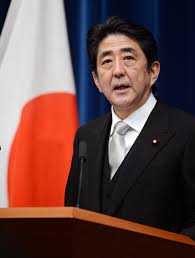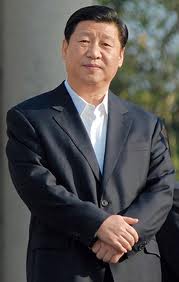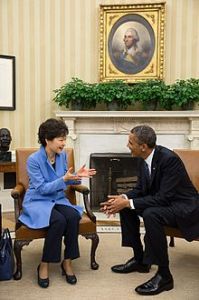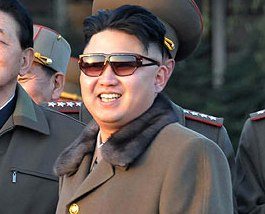Written by Wong Chin Huat
Malaysia is more powerful than any other country on earth.
Elsewhere, governments seek the protection of Allah. Here, the
government seeks to protect Allah.
And the Christmas season is the time we see this protectionism and pattern warfare again. Prime Minister Datuk Seri Najib Razak “the Moderate” has called for a truce on this matter.
Since the Court of Appeal has ruled in favour of Najib’s government, Najib’s truce call is practically to ask the Catholic Church – and the Christian community at large – to give up their right to use the word Allah.
Well, Najib who went to a Catholic school (St John’s Institution in
Kuala Lumpur) for nine years but Alhamduillah never got confused, has
already offered a moderate solution: “1 Malaysia, 2 Allahs, Endless
possibilities”.
Guess what's the elephant in the room
Without any legal basis but purely at the government’s mercy, Christians can actually use the word Allah in Sabah and Sarawak. They only need to check the word Allah into their luggage when their flight enters Malaya’s airspace.
A survey by Universiti Malaya’s Centre for Democracy and Elections (UMCEDEL) suggested that 77% of the Malays accept that solution. Only 11% of the Malay respondents agree that Allah is not a pattented word for Muslims only.
In response to Najib’s call, outgoing Catholic Archbishop Tan Sri Murphy Pakiam has asked Najib to drop the Allah ban. He prays that Najib will be a uniting statesman rather than "a bickering politician".
The faithful would say, all things are possible in God. And this is supposed to be the season of faith, if you have not acquired it earlier in the year.
But until the miracle happens, may I suggest both sides of the divide to stare at the elephant in the room?
The battle is not about the word Allah per se. It is about the use of Bahasa Melayu in faith-related context for any non-Islamic purpose.
The logic is actually simple – if you are a Malayan, you should understand it without any difficulty – since Malays are Muslim by constitutional definition, surely their language has to be a Muslim language. Now, if you are not out there to convert the Malays into other faiths, why must you use Bahasa Melayu as the preaching language?
Simple logic
Let me offer two evidences of this elephant.
First, besides Allah, many other words have also been made Islam-exclusive by various states.
Even In Sabah, 32 words including “Nabi” and “Rasul” have been banned from non-Muslim use by a fatwa issued by the Mufti Kerajaan Sabah on June 1, 2003 (No. 1,039) under Section 35 of the Enakmen Pentadbiran Undang-Undang Islam 1992 (Enakmen No. 13 tahun 1992), according to lawyer-activist Peter Marajin.
Now, what is left in an Abrahamic faith without the word “prophet”?
Second, the Indonesian version of The Origin of Species has been banned in Malaysia since 2006. Why is the English original still legally available?
Clearly, the purpose is to protect those who can read only Bahasa Melayu from the deviant teaching of Charles Darwin. Too bad for those who read English, since their faith cannot be protected from possible contamination by the evolutionists.
By the same logic, you will get into trouble if you are going to publish and circulate any religious texts for Buddhism or Hinduism in Malay. Never mind these texts are readily available in Indonesia. (One can only hope we won’t have a travel ban on Indonesia someday).
I did not make up this elephant from imagination or by logical deduction.
Here are the words of Datuk Seri Mohamed Nazri Abdul Aziz, a senior minister who has served under three prime ministers.
“Among other things, it is interpreted that if you translate any religious books into Malay language, then that is seen as an act to propagate religions other than Islam to those who profess the Muslim faith,” the then de facto law minister told Sarawak-based Borneo Post in an exclusive interview in 2010.
Instead of giving empty talk on religious harmony, Najib should just save Malaysians’ time by answering these questions:
First, if Bahasa Melayu is exclusive for Islam, can it still be the national language?
Second, if yes, is the political agenda of promoting Bahasa Melayu as the national language to eventually make every Malaysian national a Muslim?
For Allah’s sake, that’s where we need his honest answers. Does a man who received nine years of English-medium education in a Catholic school – despite having a nationalist minister father - actually believe in Bahasa Melayu as the national language? - TMI
Dr Wong Chin Huat is a political scientist at Penang Institute
And the Christmas season is the time we see this protectionism and pattern warfare again. Prime Minister Datuk Seri Najib Razak “the Moderate” has called for a truce on this matter.
Since the Court of Appeal has ruled in favour of Najib’s government, Najib’s truce call is practically to ask the Catholic Church – and the Christian community at large – to give up their right to use the word Allah.
On
the eve of Christmas, The Malaysian Chinese Muslim Association – whose
leaders include the renowned “internet researcher” Ridhuan Tee – asked
the Church point blank to drop their appeal.
Guess what's the elephant in the room
Without any legal basis but purely at the government’s mercy, Christians can actually use the word Allah in Sabah and Sarawak. They only need to check the word Allah into their luggage when their flight enters Malaya’s airspace.
A survey by Universiti Malaya’s Centre for Democracy and Elections (UMCEDEL) suggested that 77% of the Malays accept that solution. Only 11% of the Malay respondents agree that Allah is not a pattented word for Muslims only.
In response to Najib’s call, outgoing Catholic Archbishop Tan Sri Murphy Pakiam has asked Najib to drop the Allah ban. He prays that Najib will be a uniting statesman rather than "a bickering politician".
The faithful would say, all things are possible in God. And this is supposed to be the season of faith, if you have not acquired it earlier in the year.
But until the miracle happens, may I suggest both sides of the divide to stare at the elephant in the room?
The battle is not about the word Allah per se. It is about the use of Bahasa Melayu in faith-related context for any non-Islamic purpose.
The logic is actually simple – if you are a Malayan, you should understand it without any difficulty – since Malays are Muslim by constitutional definition, surely their language has to be a Muslim language. Now, if you are not out there to convert the Malays into other faiths, why must you use Bahasa Melayu as the preaching language?
Simple logic
Let me offer two evidences of this elephant.
First, besides Allah, many other words have also been made Islam-exclusive by various states.
Even In Sabah, 32 words including “Nabi” and “Rasul” have been banned from non-Muslim use by a fatwa issued by the Mufti Kerajaan Sabah on June 1, 2003 (No. 1,039) under Section 35 of the Enakmen Pentadbiran Undang-Undang Islam 1992 (Enakmen No. 13 tahun 1992), according to lawyer-activist Peter Marajin.
Now, what is left in an Abrahamic faith without the word “prophet”?
Second, the Indonesian version of The Origin of Species has been banned in Malaysia since 2006. Why is the English original still legally available?
Clearly, the purpose is to protect those who can read only Bahasa Melayu from the deviant teaching of Charles Darwin. Too bad for those who read English, since their faith cannot be protected from possible contamination by the evolutionists.
By the same logic, you will get into trouble if you are going to publish and circulate any religious texts for Buddhism or Hinduism in Malay. Never mind these texts are readily available in Indonesia. (One can only hope we won’t have a travel ban on Indonesia someday).
I did not make up this elephant from imagination or by logical deduction.
Here are the words of Datuk Seri Mohamed Nazri Abdul Aziz, a senior minister who has served under three prime ministers.
“Among other things, it is interpreted that if you translate any religious books into Malay language, then that is seen as an act to propagate religions other than Islam to those who profess the Muslim faith,” the then de facto law minister told Sarawak-based Borneo Post in an exclusive interview in 2010.
Instead of giving empty talk on religious harmony, Najib should just save Malaysians’ time by answering these questions:
First, if Bahasa Melayu is exclusive for Islam, can it still be the national language?
Second, if yes, is the political agenda of promoting Bahasa Melayu as the national language to eventually make every Malaysian national a Muslim?
For Allah’s sake, that’s where we need his honest answers. Does a man who received nine years of English-medium education in a Catholic school – despite having a nationalist minister father - actually believe in Bahasa Melayu as the national language? - TMI
Dr Wong Chin Huat is a political scientist at Penang Institute



